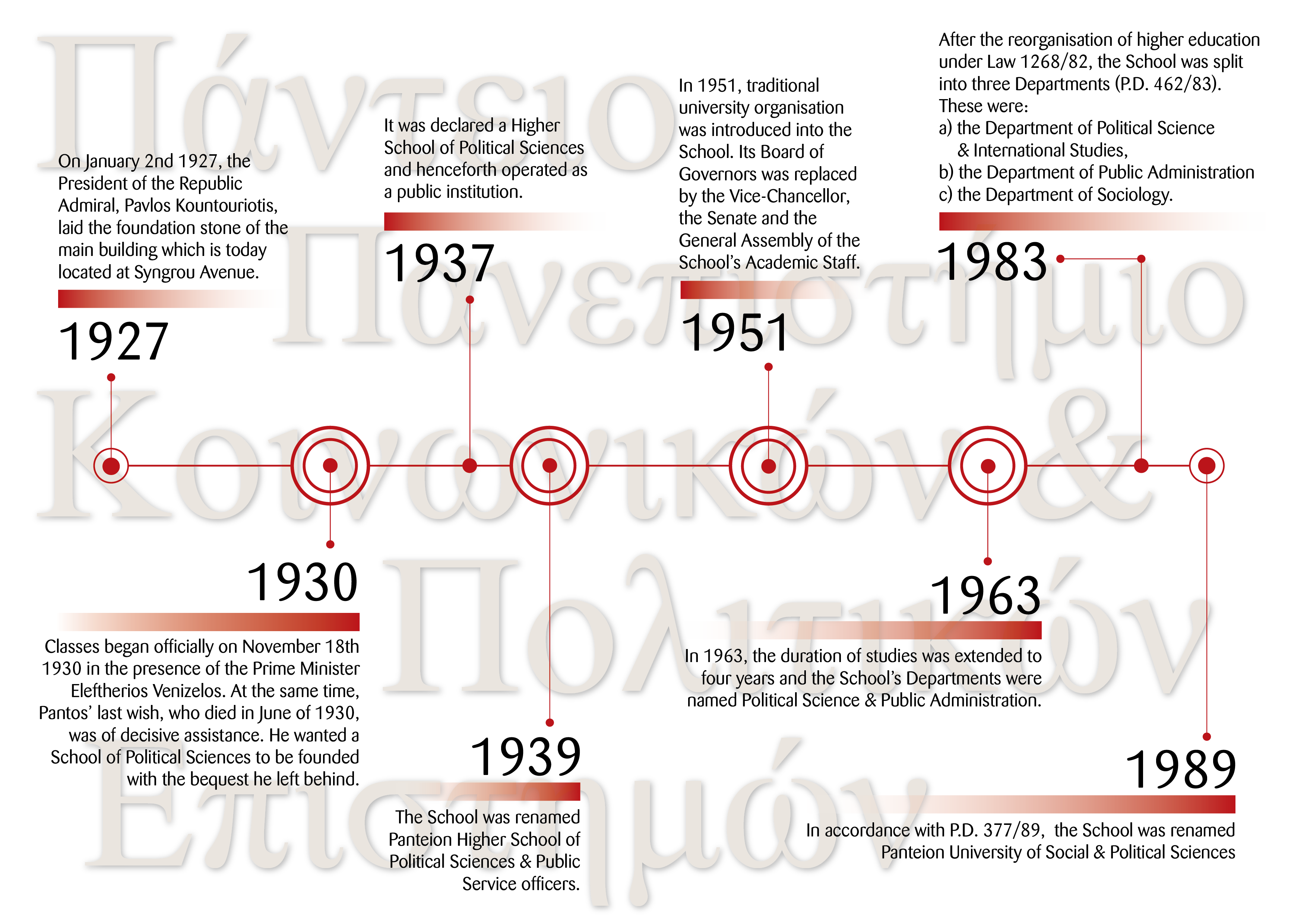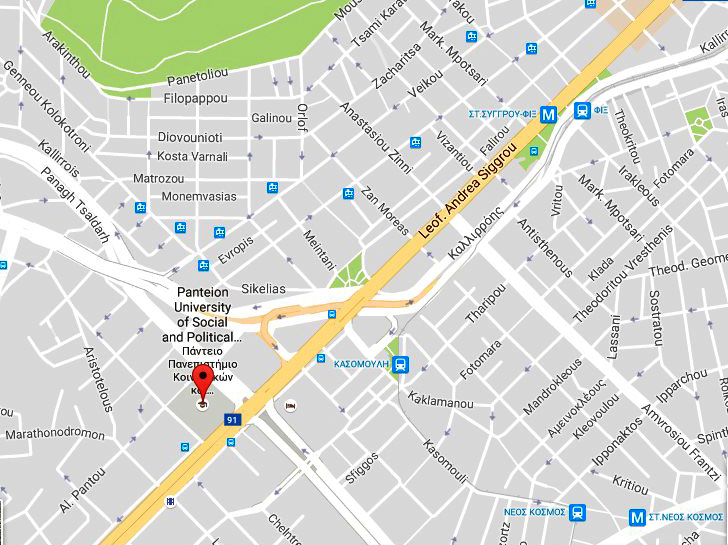Historical overview...
The history of Panteion University is the history of a creative, progressive course associated not only with the course of Higher Education and the development of the Social Sciences in Greece, but also with broader social transformation of the country.

Two men associated their names with the inception and the foundation of the School.
One of them was a Cypriot, Georgios S. Frangoudis (1869-1939). The second was Alexandros I. Pantos (1888-1930) from Volos. Both of them studied law in Athens and then political science in Paris, albeit in different periods.
It was the École Libre des Sciences Politiques in Paris, where both men studied and as a free forum for scientific knowledge and expression, this School exerted a great influence on intellectuals. Even though the paths of these two men never crossed, they had a common vision, which was to establish a School of Political Sciences in Greece to the standards of that of Paris.
The former, Frangoudis, made this vision a life’s work. The latter, Pantos, made the vision possible, as he donated virtually his entire estate for the foundation of a School of Political Sciences in Greece modelled on the École Libre des Sciences Politiques in Paris.
To promote his reformist ideas, Frangoudis established the Educational Renaissance Society in 1924, thus identifying the areas requiring reforms in education. To realise this goal, G. Frangoudis founded the School of Political Sciences through “Educational Renaissance”.
On January 2nd, 1927, the President of the Republic Admiral, Pavlos Kountouriotis, laid the foundation stone of the main building which is today located at Syngrou Avenue.
Classes began officially on November 18th, 1930 in the presence of the Prime Minister Eleftherios Venizelos. At the same time, Pantos’ last wish, who died in June of 1930, was of decisive assistance. He wanted a School of Political Sciences to be founded with the bequest he left behind.
The bequest was merged with the Educational Renaissance building in 1931 to become the Panteios School of Political Sciences. Thus the common vision of the two men became a reality.
(The portrait of Al. Pantos & the bust of G. Frangoudis are exhibited in the Panteion Museum)

In 1937, it was declared a Higher School of Political Sciences and henceforth operated as a public institution.
In 1939 the School was renamed Panteion Higher School of Political Sciences & Public Service officers.
By virtue of Law 540/43, the School reassumed its old name - Panteion Higher School of Political Science - under which it operated until 1989 and acquired the right to award doctoral degrees.
In 1951, traditional university organisation was introduced into the School. Its Board of Governors was replaced by the Vice-Chancellor, the Senate and the General Assembly of the School’s Academic Staff.
In 1963, the duration of studies was extended to four years and the School’s Departments were named Political Science and Public Administration.
After the reorganisation of higher education under Law 1268/82, in 1983 the School was split into three Departments (P.D. 462/83). These were:
a) the Department of Political Science and International Studies,
b) the Department of Public Administration and
c) the Department of Sociology.
In 1989, in accordance with P.D. 377/89, the School was renamed Panteion University of Social and Political Sciences and consisted of the following Departments:
- Department of Political Science and International Studies
- Department of Public Administration
- Department of Sociology
- Department of Urban and Regional Development
- Department of Social Policy and Social Anthropology
- Department of Communication and Media
- Department of Psychology
- General Department of Law
Then the Department of Political Science and International Studies was divided into two separate departments:
1. Political Science and History and 2. International and European Studies.
The Department of Urban and Regional Development was renamed Department of Economic and Regional Development and the Department of Communication and Media was renamed Department of Communication, Media and Culture.
The Department of Social Policy and Social Anthropology was also divided into two separate departments: Department of Social Policy and Department of Social Anthropology.
Finally, after 2012, following structural reforms, the 4 faculties were established.


